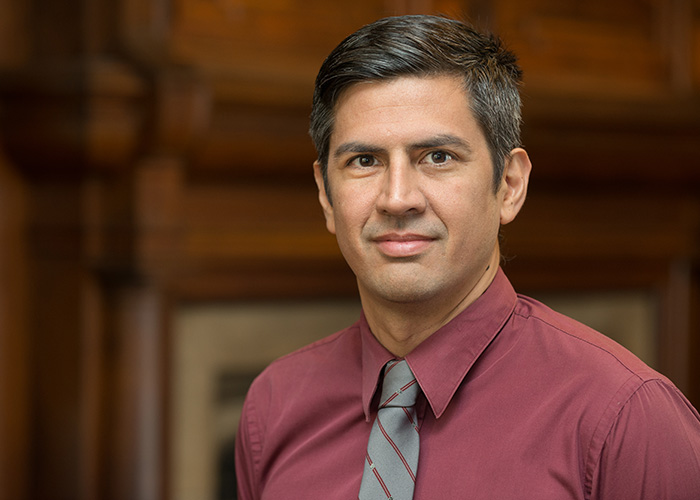
Biography:
Constantine V. Nakassis is a Professor in the Departmnet of Anthropology and of the Social Sciences in the College Resource Faculty, Cinema & Media Studies. He holds several other positions as well, as Faculty Associate, CHD, Core Faculty in CIR, Faculty in Digital Studies and Department Chair.
Prof. Nakassis is a linguistic anthropologist with research interests in language in culture; semiotics; film theory; mass media; brands and counterfeits; and youth culture. His regional focus is Tamil Nadu, India and organizes the annual Chicago Tamil Forum workshop. Prof. Nakassis received his PhD from the University of Pennsylvania in 2010.
Project Title: Perspective : vision, discours, idéologie
Perspective : vision, discours, idéologie is an edited volume that emerges out of a series of conferences and collaborations from 2017 to the present between colleagues at the University of Chicago and Paris, aimed at bridging divides between North American linguistic anthropology and French sociolinguistics. While outcomes from these collaborations have emerged in piecemeal ways, no organized single volume summarizing this dialogue has been published by this group. Further, all such published work has been in English. This volume will address both lacuna, bringing together a set of papers from the most recent workshop in French.
The project featured a year-long series of monthly reading seminars where Nakassis’s team discussed nine works-in-progress by the group’s participants. These lectures and papers ranged over a number of different approaches and topics, from the phenomenology of perspective and space in Omani interaction (Kamala Russell), the ethnographic ethics of perspective in documentary film making among Roma people in Bulgaria (Cécile Canut) and in the study of Tibetan ritual (Urmila Nair), and perspective shifts and genre in Trinidadian literature (Bertrand Masquelier) to the politics of perspective in Vietnamese revolutionary praxis in the creation of a “proletariat” (Jack Sidnell), in US legal defenses of police murders (where audio-visual texts are commissioned to provide demonstrative evidence of the charged officer’s point of view; Constantine Nakassis), in erasure of perspective as a mode of power and authorization (Susan Gal), and in the naturalization of language endangerment in the colonization of Ireland (James Costa). What emerged was a rich, interwoven tapestry of semiotic approaches to perspective that highlighted perspective as the effect of semiotic processes ranging over and integrated across multiple modalities and scales: from visual perception and voicing shifts in interactional events to habits and ways of speaking and perceiving (including but not limited to seeing) sedimented over months, years, decades, and centuries.
 THE UNIVERSITY OF CHICAGO
THE UNIVERSITY OF CHICAGO

